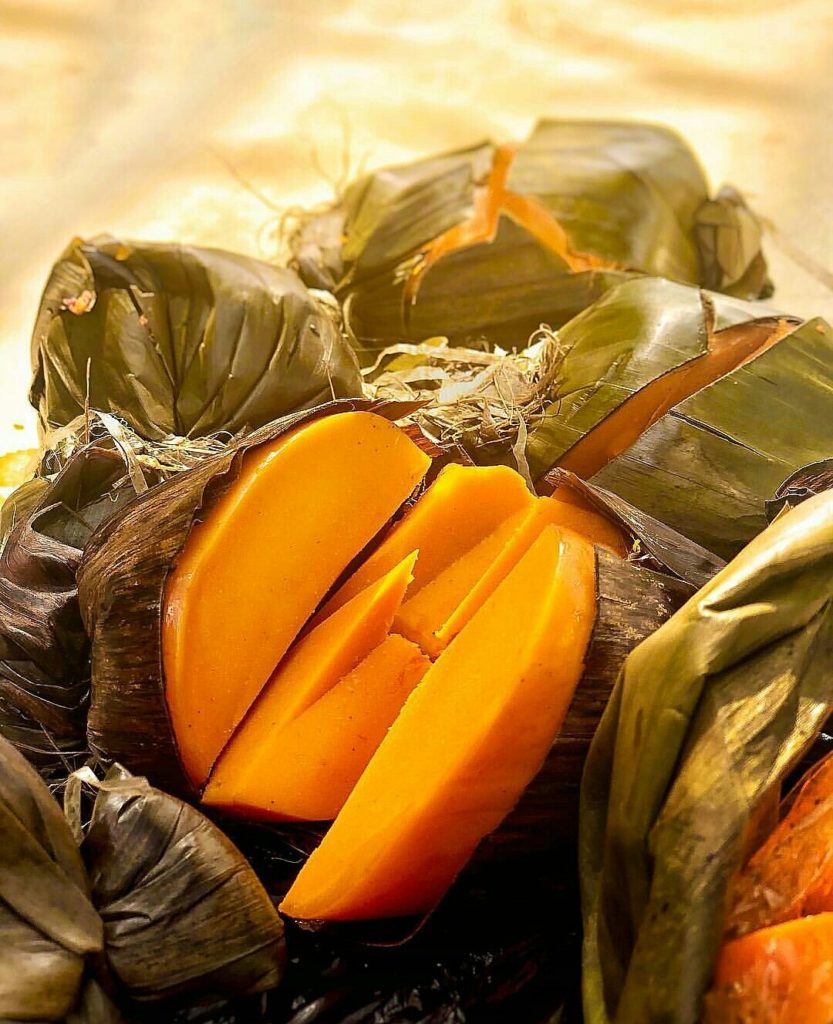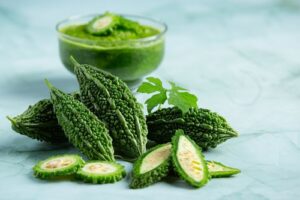Bambara Nut (Okpa) is a delicious superfood that is enjoyed by many Africans. It is scientifically called Vigna subterranea and is a drought-resistant legume that grows in West African countries (Nigeria, Cameroun, and Chad). Other names for this wonderful complete food are Bambara bean, Bambara groundnut, condo goober, earthpea, ground bean, and hog-peanut.
The nuts are incredibly nutrient-dense and loaded with lots of vitamins and minerals. They help improve blood glucose control, boost immune health, improve bone health, as well as provide the body with minerals and vitamins.
Nutrition Facts of Bambara Nut
Barbara nuts are very nutritious and filling. They contain essential nutrients and minerals, that are comparable to the amount found in milk products.
Per 100 grams of Bambara nut seeds contains:
- Energy: 412 kcal
- Fats: 6 – 6.5 grams (g)
- Cholesterol: 0 milligrams (mg)
- Trans fat: 0 mg
- Protein: 20 g
- Carbohydrates: 65 g
- Dietary Fiber: 6 g
- Moisture content: 1.5 – 2.16 g
And essential minerals:
- Calcium: 14 – 18 mg
- Iron: 0.15 mg
- Potassium: 58 – 81mg
- Phosphorus: 165 – 187 mg
- Magnesium: 50 – 69 mg
- Sodium: 19 – 26 mg
The nuts also contain trace amounts of vitamin C, selenium, zinc, and copper.
Note: Information is based on per 100g of nuts and approximate values are provided.
Health Benefits of Bambara Nut
Bambara nuts have the following top six health benefits:
1. Improves Blood Sugar

Bambara nuts contain a high essential amino acid profile that is comparable to that of soybeans making it a superfood that helps regulate blood glucose levels.
A 2008 study showed that blood glucose response was significantly reduced when compared to a bread diet for both diabetes and non-diabetes. The results further indicated that blood glucose response was better with Bambara nut dumplings (okpa) than with beans cake (moi-moi).
Suggesting that bambara nut dumplings (okpa) are a better diet for diabetic patients.
Also Read: 10 surprising reasons to add Black-eyed peas (Cowpeas) to your diet.
2. Bone Health
Bambara nuts contain calcium and phosphorus which is essential for healthy and strong bones, especially in the elderly.
The nuts also contain lysine, an amino acid commonly found in beans and other protein foods. This amino acid helps the body absorb more calcium and reduces the loss of calcium in the urine, thereby protecting bone health.
3. Prevents Cancer
Bambara groundnut seeds have the highest concentration of soluble fiber and antioxidants when compared with other legumes.
Soluble fiber is a micronutrient believed to reduce colon cancer and cardiovascular disease.
6. Boosts immune health
Barbara nuts contain antioxidants like vitamin C and iron.
These antioxidants reduce the incidence of heart diseases, boost immunity, and help prevent cancer.
Antioxidants are known to protect the body from harmful food chemicals and toxins.
5. Promotes Digestion
Bambara nuts are high in dietary fiber, which helps promote regularity, prevent constipation, and maintain a healthy digestive tract.
6. Malnutrition and pregnancy
Barbara groundnuts are a true quality protein food, they provide more methionine (essential amino acid) than any other grain legumes, let alone the standard staple cereals.
The nuts provide 412 kilocalories of energy per 100g of nuts and provide the body with protein, fats, and carbohydrates. It is a rare example of a complete food.
The high protein content protects young children with kwashiorkor (protein deficiency) and prevents anemia in pregnancy.
The nuts also help in insomnia, chronic fatigue syndrome, and heavy/prolonged menstruation.
Culinary Use

Barbara groundnuts are boiled, salted, and eaten as a relish or roasted and eaten as a snack.
In the eastern part of Nigeria, bambara nuts are ground into a fine powder. The powder is mixed with palm oil, salt, and pepper before being boiled into a cakey pudding (dumplings) to make “okpa”. Okpa is a delicious breakfast food common in Enugu, Nsukka, and Ngwo Nigeria.
In other parts of Africa, the nuts are processed into flour and used in baking. They are also processed into probiotic beverages and used as a substitute for milk.
The Bottom line
Bambara groundnut (Vigna subterranea) is the third most important legume in the world. The only downside is that this wonder nut is highly under-utilized and neglected.
Healthy legumes like bambara nuts, black-eyed peas (Nigerian beans), and pigeon peas are recommended and should be added to your diet, especially in the diet of growing children and women of childbearing age.
- The potential of Bambara Groundnut as a prebiotic Determination of the glycemic index of bambara nut and cowpea
- Comparison of nutritional composition and anti‐nutrient status of fermented, germinated and roasted bambara groundnut seeds
- Identification of protein types in Bambara nut seeds: Perspectives for dietary protein supply in developing
- Bambara Groundnut [Vigna subterranea (L.) Verdc: (Fabaceae)] Usage in Human Health
Get new free and exclusive health tips delivered straight to your inbox!



